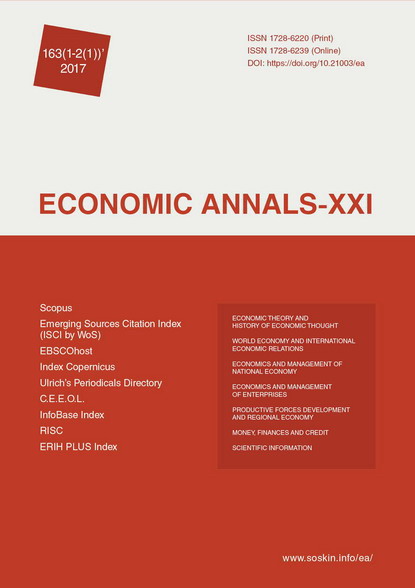The current state and prospects of trade relations between Ukraine and the European Union: the Visegrad vector
The current state and prospects of trade relations between Ukraine and the European Union: the Visegrad vector
Author(s): Serhiy Moroz, Ludmila Nagyova, Yuriy Bilan, Elena Horská, Zuzana PolakovaSubject(s): Economy, International relations/trade, EU-Approach / EU-Accession / EU-Development
Published by: Institute of Society Transformation
Keywords: Foreign Trade; Export; Import; Ukraine; Visegrad Countries; Eastern Partnership; Free Trade Agreement; DCFTA; European Neighbourhood Policy
Summary/Abstract: The authors consider main trends and perspectives of trade relations between Ukraine and the Visegrad countries. There has been a significant reduction in Ukraine’s foreign trade in recent years due to various factors related to the complicated economic situation and the military conflict in the East of Ukraine. In such adverse conditions, a gradual reorientation of the country’s import and export trade flows from the Russian Federation towards the European Union is taking place, including the Visegrad countries. Ukrainian producers aim their efforts at diversification of markets and look for new business opportunities in this regard. The results of Ukraine’s export trade with the V4 countries analysis showed that the country’s operations with Poland, Czech Republic and Slovak Republic were focused mainly on raw materials. There was a different situation regarding Hungary, where machine building sector export showed a sound increase. Nevertheless, the share of primary goods in Ukraine-Hungary trade increased as well. At the same time, bad economic conditions and high level of inflation in Ukraine stipulated decrease in import trade of goods, in particular, with the V4 countries. It should be noted that substantial structural changes in foreign trade between the countries have not been observed. Other changes concerned different groups of raw materials and finished products. It means that most likely the changes were situational, and they were not caused by some new strategic directions regarding export activities. Intensification of foreign trade activities is essential to overcome the crisis situation in Ukraine and promote its economic development. In the context of DCFTA and the European Neighbourhood Policy realisation, particular attention should be given to elaboration of the national trade strategy and identification of export priorities, taking into account, on the one hand, the existing potential of the country, and, on the other hand, opportunities in international trade, which could be used to the full extent. If this strategy is implemented successfully, it will allow the country to improve its economic situation and integrate more effectively into the international trade system.
Journal: Економічний часопис - ХХІ
- Issue Year: 163/2017
- Issue No: 01+02
- Page Range: 14-21
- Page Count: 8
- Language: English

